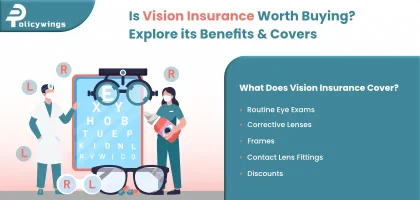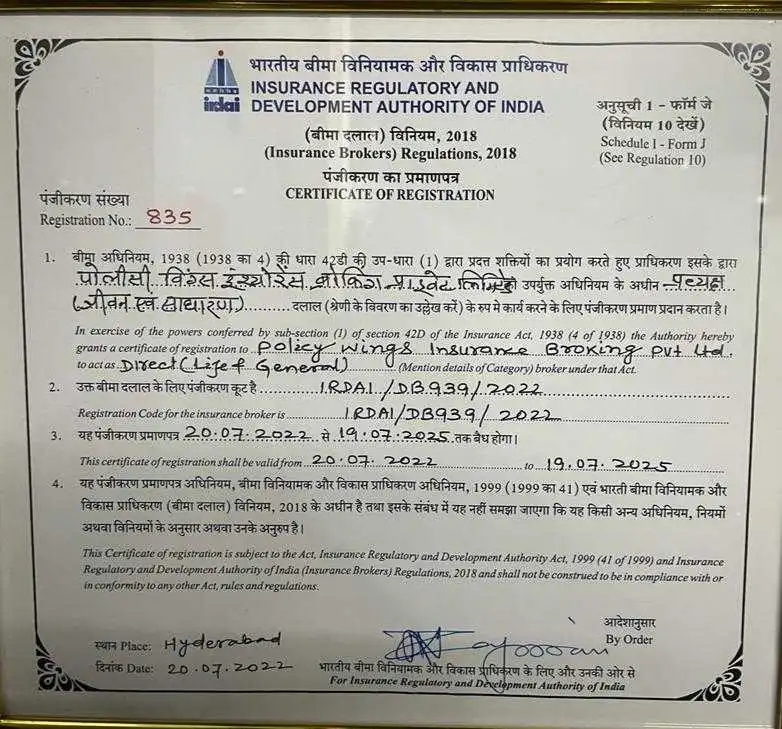Eyewear Insurance
Eyewear Insurance
Your vision is precious, and taking care of it should be a top priority. Whether you wear prescription glasses, contact lenses, or sunglasses, accidents and damages can occur at any time. That’s where eyewear insurance comes into play
Types of Eyewear Insurance

Vision insurance is a type of insurance plan specifically designed to cover eye-related expenses. It typically includes coverage for routine eye exams, prescription glasses, contact lenses, and discounts on corrective surgeries such as LASIK. Vision insurance offers a range of plans with varying levels of coverage, making it suitable for individuals and families.

Eyewear protection plans are offered by eyewear retailers and manufacturers. These plans provide coverage against accidental damages, loss, or theft of your eyewear. They often offer repair or replacement services at a fraction of the original cost. Eyewear protection plans are an excellent option for those who want to safeguard their investment in high-quality glasses or sunglasses.

Many eyewear brands offer warranty programs for their products. These warranties usually cover manufacturing defects and faulty materials. Depending on the brand, the warranty may also include coverage for accidental damages within a specific timeframe. It’s essential to read and understand the terms and conditions of the warranty before making a purchase.
Choosing the Right Eyewear Insurance Plan
- Assess Your Needs : Before choosing an eyewear insurance plan, assess your needs and consider factors such as your eye health, lifestyle, and budget. Evaluate how frequently you require eye exams, the type of eyewear you use, and whether you have any specific vision issues or conditions that require specialized care. This assessment will help you determine the level of coverage you need and the features that are most important to you.
- Coverage Options : When selecting an eyewear insurance plan, carefully review the coverage options available. Look for plans that offer comprehensive coverage for routine eye exams, prescription glasses, contact lenses, and even vision correction surgeries. Additionally, consider if the plan covers other eyewear-related expenses such as lens coatings, frames, and accessories.
- Network Providers : Check if the insurance plan has a network of preferred eyecare providers. Choosing a plan with an extensive network ensures that you have access to a wide range of eye specialists, optometrists, and opticians. This network can be particularly beneficial if you prefer to visit specific providers or if you require specialized eye care services.
- Pricing and Premiums : Compare the pricing and premiums of different eyewear insurance plans. Consider the monthly or annual premiums, deductibles, and co-pays associated with each plan. Additionally, evaluate if the plan offers any discounts or incentives for multiple family members or if it provides flexible payment options that align with your budget.
Key Features of Eyewear Insurance
- Comprehensive Coverage : A valuable feature of eyewear insurance is comprehensive coverage, which includes routine eye exams, prescription glasses, contact lenses, and more. This ensures that all aspects of your eye care needs are adequately covered, giving you peace of mind knowing that you can maintain optimal vision health.
- Replacement and Repair Services : Look for eyewear insurance plans that offer replacement and repair services. Accidents happen, and eyewear can get damaged or broken. With this feature, you can easily get your glasses repaired or replaced without incurring significant out-of-pocket expenses.
- Prescription Updates : Prescription updates are an essential aspect of eye care. Ensure that the eyewear insurance plan allows for regular prescription updates to accommodate any changes in your vision. This ensures that your eyewear remains accurate and effective in correcting your vision.
- Coverage for Accidental Damage: Accidents can occur unexpectedly, resulting in damage to your eyewear. Choose an insurance plan that covers accidental damage, including situations such as dropping or stepping on your glasses. This coverage provides financial protection and allows you to replace or repair your eyewear without additional costs.
Advantages of Eyewear Insurance
- Financial Protection : Eyewear insurance offers financial protection by covering the expenses associated with eye care and eyewear. From routine eye exams to the purchase of glasses or contact lenses, the insurance plan helps alleviate the financial burden, ensuring that you can access the eyewear and care you need without breaking the bank.
- Discounted Eyewear Purchases : Many eyewear insurance plans provide discounts on the purchase of glasses, contact lenses, and accessories. These discounts can significantly reduce the overall cost of eyewear, making it more affordable to invest in high-quality products that enhance your vision.
Reasons to Buy Eyewear Insurance in 2023
- Increasing Eyewear Costs : Eyewear costs have been on the rise in recent years. From designer frames to advanced lens technologies, the prices can quickly add up. By purchasing eyewear insurance, you can mitigate the financial impact of these rising costs and ensure that you can afford the eyewear that best suits your needs.
- Frequent Use of Digital Devices : With the increasing reliance on digital devices such as smartphones, tablets, and computers, our eyes are exposed to prolonged screen time. This can lead to eye strain, dryness, and other vision-related issues. Eyewear insurance can cover the cost of specialized lenses designed to reduce digital eye strain and provide a more comfortable viewing experience.
- Unpredictable Accidents and Damages : Accidents happen, and eyewear is not immune to damage or loss. Whether it’s a dropped pair of glasses or misplaced contact lenses, having eyewear insurance ensures that you can quickly replace or repair your eyewear without incurring significant expenses. It provides peace of mind knowing that you are protected against unforeseen events.
Leading Health Insurance Companies
















